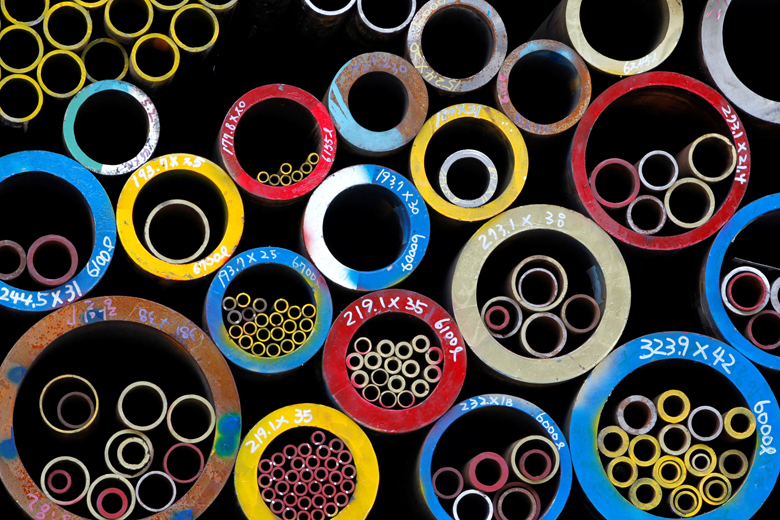US steel tariffs plan may redirect shipment to Indonesia, hurting local industries
Sign up now: Get insights on Asia's fast-moving developments

Companies that sell steel to the United States may find their product less competitive there, if the tariffs plan materialises, and turn to other markets, said industrialists in Indonesia.
PHOTO: REUTERS
Follow topic:
JAKARTA - US President Donald Trump's plan to impose 25 per cent tariffs on steel imports has triggered worries that steel shipment could be redirected to other countries, including Indonesia.
Companies that sell steel to the United States may find their product less competitive there, if the tariffs plan materialises, and turn to other markets, said industrialists in Indonesia.
While noting that the US plan is a good move to protect its domestic players, they expressed concerns about that impact on local industries.
"Donald Trump did a good job for his nation. What we should be worried about now is they may shift to Indonesia, flooding the market here, and hurting the local industries.
"The Indonesian government must take preemptive measures on this," said Mr Rudy Syamsuddin, president director of Makassar-based Sermani Steel, which produces galvanised steel sheet for house roofing.
"Like the US, Indonesia must also protect its industries as in not only maintaining its tariffs but also eradicating smuggling. Indonesia has imposed tariffs (to put a control) on steel but the rampant smuggling is not controllable," Mr Rudy told The Straits Times.
President Trump announced on Thursday (March 1) that he would impose 25 per cent tariff on imported steel and 10 per cent on aluminium to protect US producers. He said the news would be formally announced next week although White House officials later said some details still needed to be ironed out.
South-east Asia's biggest aluminum ingot producer Inalum said it will not be directly affected by Mr Trump's plans as the bulk of its output, or 91 per cent, is allocated for the domestic market, with the remaining 9 per cent exported to overseas buyers.
However the Jakarta-based, state-owned company foresees the possibility of excess supply flooding the market. "... if the product is restricted in one country, producers may end up shifting it somewhere else," said CEO Budi Gunadi Sadikin.
Mr Trump believes the tariffs will safeguard American jobs but many economists say the impact of price increases for consumers of steel and aluminium, such as the auto and oil industries, will be to destroy more jobs than they create.
Indonesian industries used about 12.7 million tonnes of steel in 2016 and the amount has been projected to increase to 21.4 million tones in 2025. It is boosting its infrastructure development, enhancing connectivity across the archipelago to improve logistic efficiency by building railways, ports, airports and other infrastructures.
The government has earlier budgeted 4,700 trillion rupiah (S$470 billion) to develop infrastructures between 2015 and 2019.
Logistic inefficiency remains a challenge in Indonesia, making its industries lose competitiveness overseas.
Indonesia's finance ministry said last year that the average time to travel 100km in Indonesia is 2.6 hours, compared to 1.1 hours in Malaysia and 1.2 hours in China.
Railway contributes 10 per cent of the modes of transportation in Indonesia, compared to several neighburing countries that record 25 per cent, the finance ministry also said, pointing out that the excessive use of private cars in Indonesia have worsened traffic jams and therefore increased logistic costs.

